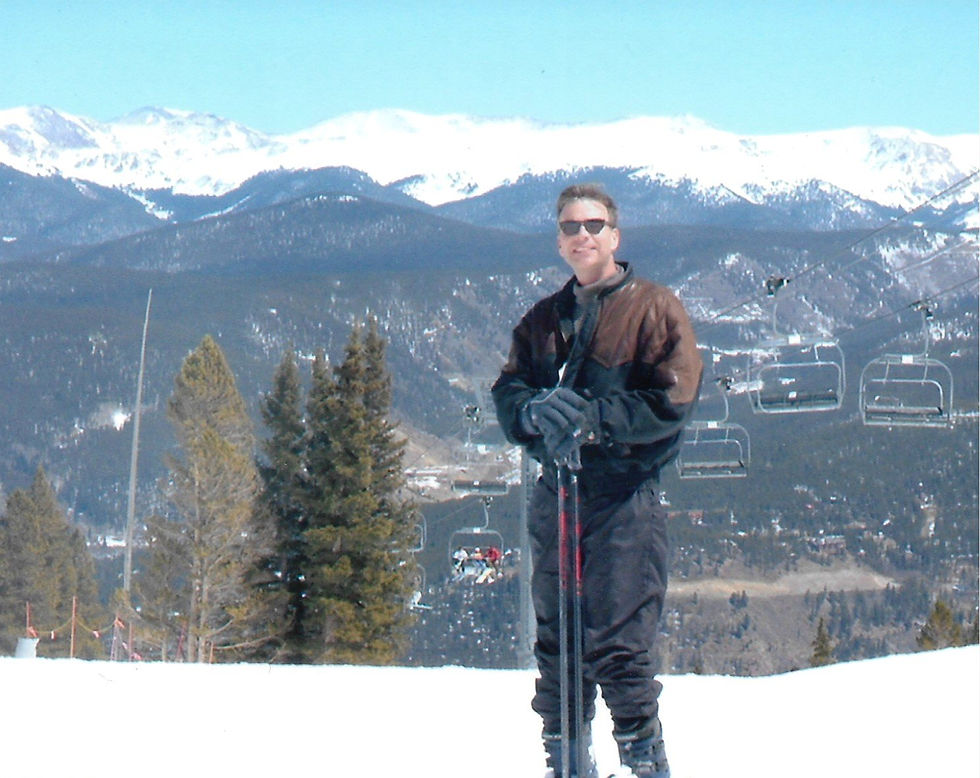Why am I (Still) a Roman Catholic
- Paul Winkler

- Aug 22, 2025
- 4 min read

My solid, unwavering belief in God solidified about 13.8 billion years ago. Whenever I have a moment of doubt, my “go-to” was and still is the Big Bang theory — no, not the TV show, but the actual cosmological theory of the origin of the universe.
The Big Bang
As a kid, I was really into astronomy and spent many quiet nights staring into the stars. That silence gave me space to ponder the universe's origins — including the Big Bang, proposed by Father Georges Lemaître, a Belgian priest and cosmologist.
Like him, I had no trouble reconciling science with faith. I found it compelling that a priest-scientist wasn’t threatened by his theory; he once said he saw no reason it disproved God’s role in creation. Neither did I — and neither does the Church.
I was more interested in what happened before the Big Bang. Like Father Georges, I believed in a first mover, because nothing “just happens.” That first mover was — and is — God. Thanks to my Catholic education, I already knew him well.
The Gift of Faith & Tevye
My gift of faith made it extremely easy for me to know, love and eventually serve God. Growing up in a Catholic family, I just kind of knew God existed, so what I learned in Catholic school, when I was actually paying attention, filled in the beautiful details of salvation history that just deepened my relationship with God.
During a sixth-grade field trip to see “Fiddler on the Roof” in downtown Akron, I found a kindred spirit. Back in the classroom afterward, our teacher asked what made the character Tevye unique. I rarely volunteered to answer questions in school because my mind was often somewhere else. When I was called on, I said that Tevye talked to God constantly — about his life, his struggles and his joys — as if God were sitting right next to him. Our teacher said my answer was great, which felt like a miracle in itself. I left out the part that I did the same thing as Tevye.
It's not that God and I always saw eye to eye on things. I often questioned his teachings. I was a fairly compliant sheep of the flock who occasionally strayed off the ranch, and he always brought me back.
The Jesuits
As I continued to grow in faith and wrestle with God, my Jesuit high school teachers (shout out to Walsh Jesuit in Akron, OH) connected the love of God to the love of neighbor. They helped me reconcile the God of justice with the God of love. They helped me see that the Catholic faith was not for the passive but was a faith of action, particularly making the corporal and spiritual works of mercy come alive as we strived to become men for and with others — all for the greater glory of God (AMDG)!
The Bible and the Saints
That call to be men and women for and with others echoes throughout the Bible and the lives of the saints. The New Testament is chock-full of exhortations to imitate Christ in order to grow in holiness and to better understand the nature of our invisible God. When we know Jesus, we come to know God, and we also understand that Jesus came to make us children of God and to set us free from our slavery to sin.
Likewise, the lives of the thousands of saints who lived before us all point us to God in their own unique ways. St. Jerome reminds us that “Ignorance of the Scriptures is ignorance of Christ.” St. Paul, my patron saint, was a lover of the law until his encounter with Jesus on the road to Damascus, when he discovered the more excellent way through the law of love.
Then there’s Ven. Fulton Sheen, whom I like for two reasons. First, he said, “Let them have coffee before meditation” — at least, that’s what it says on my coffee cup. He was a coffee guy — love that.
The other reason is more substantial: he told his TV audience fifty-plus years ago that we were no longer living in Christendom but had entered a new apostolic age, and he challenged them (us) to understand what that shift meant. In one of his talks, he said plainly and directly:
“We are at the end of Christendom, not the end of Christianity. What is Christendom? Christendom is the economic, political and social life of a nation as governed by the gospel ethic. That is finished, and the sooner we recognize it, the sooner we can begin to build anew.”
I can’t do what I do in this apostolic era alone. I do what I do with the help of my heavenly friends listed above and many, many more saints in the making.
St. Peter wrote in 2 Corinthians 4:8-9, “We are afflicted in every way, but not crushed; perplexed, but not driven to despair; persecuted, but not forsaken; struck down, but not destroyed.” I think his hope certainly lies in his relationship with Christ, but he’s also bolstered by his friends on earth.
Likewise, St. John Henry Newman wrote, "I have my mission. I may never know it in this life, but I shall be told it in the next. I am a link in a chain, a bond of connection between persons. He has not created me for naught." I wake up every day knowing this, too.








